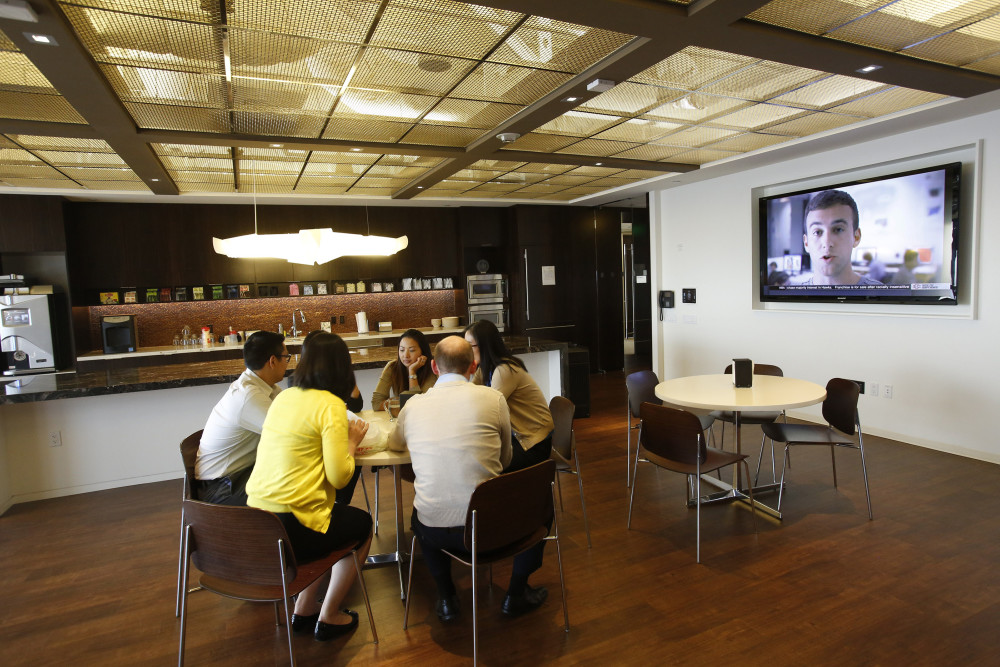By Brett Graff
Miami Herald
WWR Article Summary (tl;dr) New research from Cornell University shows sharing a meal with colleagues can improve our on-the-job performance, making us productive and better regarded by our bosses.
Miami Herald
When you’re a columnist working alone, writing alongside only your dog and an internal voice suggesting you sneak away to watch a “Real Housewives” episode, then lunching with colleagues sounds like the ultimate experience.
New research proves that’s true in many ways. Yes, because more than the idea of menus or out-loud conversation, new research from Cornell University shows eating with people at work can make us money. Sharing a meal with our colleges can improve our on-the-job performances, making us productive and better regarded by our bosses, two characteristics common in people with increasing incomes.
“Eating together is one of these processes that blends into the background and gets taken for granted,” says Kevin Kniffin, a professor of organizational behavior at Cornell University. “But it’s recognized as something that’s intimate and relationship building.”
Kniffin’s team examined 13 fire houses, over 20 percent, of a large fire department. Firefighters, he says, are a single occupation with great variation in cultures among stations. Those who worked on teams that maintained family-like environments with meal-sharing were rated by supervisors as having significantly better performance, says Kniffin.
You could argue, as I did, that supervisors who sit around a table with their employees will know them better, like them more, and, in turn, rate them favorably. That wouldn’t, of course, diminish the point of it all. If your supervisors think you’re great, even if you’re not, your career would most certainly advance.
But Kniffin disagrees, saying that first that the supervisors are dispatched across the city’s brigades, having oversight over so many teams they could be readily objective.
“I like to think supervisor ratings are more objective than simply liking people,” says Kniffin. “Where people didn’t share meals, we found a significant difference in cooperation and coordination that affected productivity.”
This finding, says Kniffin, would apply to all of us, in cubicles, hospitals, construction sites, shops and even home offices.
That’s because eating together is intimate, Kniffin says, and, unlike those manufactured team building exercises that sometimes elicit dread and always require coordinated blocks of time, is something we’re all going to do anyway. These meals ultimately foster the kind of cooperation that moves agendas.
“There are attractions for both the employee and the employer perspective,” says Kniffin.
The attraction could fade, though if we’re really bad at this sort of thing, says Jacqueline Whitmore, a business etiquette expert and founder of the Protocol School of Palm Beach, Fla. So we have to mind our manners, use utensils when necessary, chew with our mouths closed, and, it seems, slurping hasn’t made any great comebacks.
But also we should stay away from mean-spirited gossip, says Whitmore. Speculating when Janice’s baby will arrive is fine, she says. But deliberating the identity of the real father is perhaps the kind of talk that will make you seem untrustworthy and mean.
On the other hand, it’s a great time to ask colleagues and bosses for advice, says Whitmore. And it’s a fantastic opportunity to discuss out-of-office interests, such as food, travel, pets and kids. It’s also a nice time to discuss future professional collaborations.
“Be a good listener,” says Whitmore. “Ask open-ended questions. Put the focus on the other person.
buy super kamagra online pridedentaloffice.com/wp-content/themes/twentytwentyone/inc/en/super-kamagra.html no prescription
”
___
ABOUT THE WRITER
Brett Graff is a former U.S. government economist and the editor of www.thehomeeconomist.com, where she reports on the economic forces affecting real people.














































































































































































































































































































































































